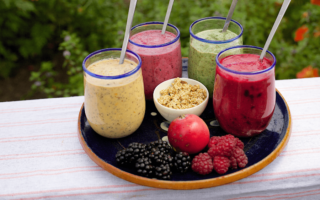Today, I want to talk about seven nutrients every child needs. Children are constantly growing, which is why it’s critical they have adequate nutrition. Sometimes, it is not easy to meet these needs, especially in children who refuse to eat.
How can we help our children to maintain good nutrition?
Including nutrient-rich foods in your meals and snacks. In some cases, we may need extra supplementation. Although supplementation does not replace food, it helps to improve nutritional deficiencies.
I list here seven nutrients every child needs:
- Vitamin D: Vitamin D is important for calcium absorption. In addition, to prevent colds and influenza, it also reduces the risk of developing chronic and autoimmune diseases. This vitamin is not commonly found in foods unless they are fortified. Some food sources include egg yolk, and fortified cereals or dairy products. The best way to get vitamin D is through exposure to sunlight or with a vitamin D supplement.
The American Academy of Pediatrics recommends supplementing babies under 1 year of age and 600 IU in older children of the year of age with 400 IU (International Units).
As a mom, I always supplement my little ones with vitamin D from the beginning of autumn to the end of winter. Flu and cold episodes have been greatly reduced. The days they spend sick are very few.
- Iron: Iron is important in the brain development of younger children and during periods of rapid growth. Red meats, egg yolk, potatoes or potatoes, tomatoes, beans or legumes, molasses, and raisins are excellent sources of iron. Also, some grains and cereals contain additional iron (important to read the nutritional label). For optimal iron absorption, it is best to combine these foods with foods rich in vitamin C, such as fruits and vegetables.
- Omega-3 Fatty Acids: Children need fatty acids to absorb vitamins like A and D, and it’s critical for brain development. However, in recent years, some studies show Omega-3 fatty acids can have a positive effect on autism and attention deficit hyperactivity disorder. Salmon is an excellent source of omega 3. Similarly, you can find these healthy fats in avocado, olive oil, and coconut oil.
- Fiber: In addition to preventing constipation, fiber helps to reduce the risk of inflammatory bowel diseases, type II diabetes, obesity, and coronary heart disease. It is advisable to serve children a high-fiber food with each meal and snack. Among the best sources of fiber, we find beans, whole grains, nuts, seeds, fruits, and vegetables.

- Calcium: Besides, being an essential nutrient in strengthening bones, calcium is necessary for nerves, muscles and the heart to function properly. That’s why it’s important for children to have an adequate intake of this nutrient. Its main source is dairy products (milk, yogurt, cheese). There are also some non-dairy sources such as green leafy vegetables (spinach, broccoli, kale, lettuce, perejíl), legumes and canned sardines.
Tip: Mix legumes and vegetables to make stews and stews.
- Probiotics: Good gut health not only impacts overall health but also how your kids feel on a daily basis. An adequate balance of gut bacteria, as well as helping to prevent constipation, also helps strengthen the immune system. Fermented foods like yogurt, kefir, and miso are naturally rich in probiotics. Start serving them daily until it becomes a habit to consume them.
Sometimes it’s a little difficult for children to consume fermented foods. In these cases, a supplement is recommended. Liquid or powder presentations are better, as they can be added to fruit smoothies, oats, and milk.
- Zinc: This mineral is also associated with strengthening the immune system and also helps to keep skin healthy. Red meats and chicken are suitable sources of zinc. Although this can also be found in beans, nuts, eggs, and whole grains.
This post is not a substitute for a doctor’s visit. If you have questions about supplements and vitamins, you can always discuss it with your pediatrician or nutritionist.













